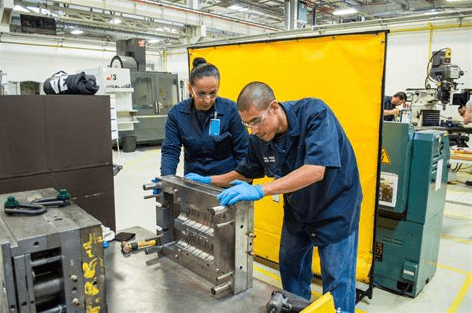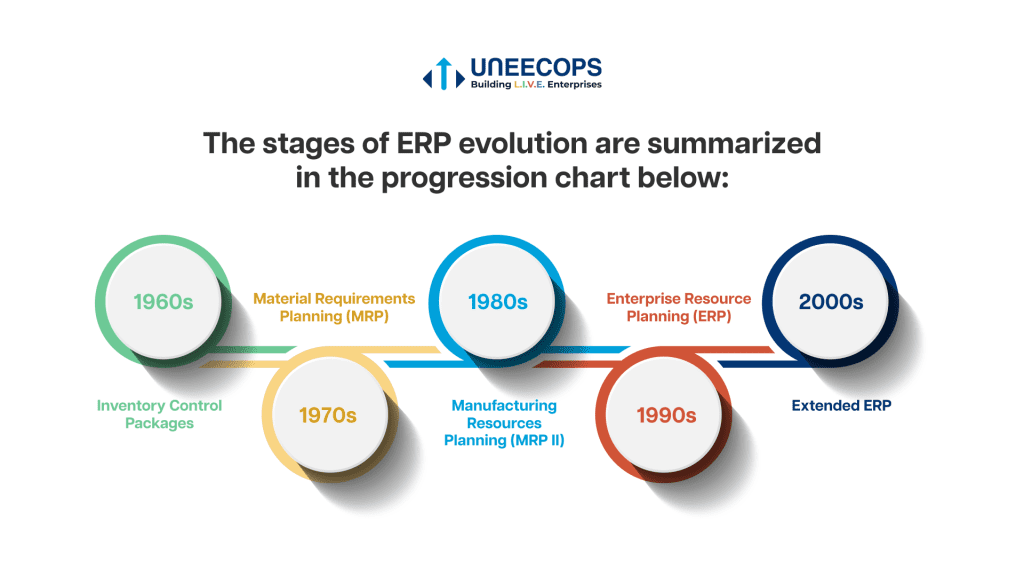Erp System For Custom Manufacturing
Welcome to our article on optimizing custom manufacturing with an ERP system! In today’s fast-paced market, custom manufacturing companies face unique challenges when it comes to managing their operations efficiently. An ERP system can streamline processes, increase productivity, and improve overall performance. Let’s explore how custom manufacturers can leverage ERP solutions to stay competitive and meet customer demands.
Benefits of Implementing ERP in Custom Manufacturing
Implementing an ERP system in custom manufacturing can greatly improve efficiency, productivity, and overall business success. ERP software allows companies to streamline their processes, leading to faster production times and reduced costs. One of the main benefits of ERP in custom manufacturing is improved visibility and control over operations. With all data centralized in one system, managers can easily track the progress of each project, identify bottlenecks, and make timely decisions to keep projects on track.
Another key benefit of implementing ERP in custom manufacturing is the ability to optimize resource utilization. By having access to real-time data on inventory levels, production schedules, and customer demand, companies can better plan and allocate resources. This leads to reduced waste, improved inventory management, and increased overall efficiency. In addition, ERP systems enable better communication and collaboration between different departments within the organization. With all data stored in a centralized system, departments can easily share information, update project statuses, and coordinate activities to ensure smooth operations.
Furthermore, ERP systems help custom manufacturing companies meet customer demands and ensure satisfaction. By having accurate data on customer preferences, order histories, and delivery schedules, companies can tailor their products and services to meet specific customer needs. This leads to increased customer satisfaction, repeat business, and positive word-of-mouth referrals.
In addition to improving internal processes and customer relationships, implementing an ERP system in custom manufacturing can also lead to better business intelligence and decision-making. With detailed analytics and reporting capabilities, managers can gain insights into key performance indicators, trends, and opportunities for improvement. This data-driven approach allows companies to make informed decisions, identify areas for growth, and stay ahead of competitors in the market.
Overall, the benefits of implementing ERP in custom manufacturing are numerous and have a significant impact on the success of the business. From improved efficiency and resource utilization to enhanced customer satisfaction and better decision-making, ERP software can transform how custom manufacturing companies operate and thrive in today’s competitive market.
Key Features to Look for in an ERP System for Custom Manufacturing
When searching for an ERP system for custom manufacturing, it’s important to look for key features that will help streamline your processes and improve efficiency. Here are some essential features to consider:
1. Customizable Workflows: Custom manufacturing often involves unique processes and workflows that may differ from standard manufacturing processes. Look for an ERP system that allows you to customize workflows to meet the specific needs of your business. This will help ensure that the system aligns with your existing processes and can adapt to any changes in the future.
2. Advanced Planning and Scheduling: One of the most crucial aspects of custom manufacturing is planning and scheduling production efficiently. An ERP system with advanced planning and scheduling capabilities can help you optimize your production processes, minimize lead times, and ensure on-time delivery of orders. Look for features such as capacity planning, finite capacity scheduling, and real-time production monitoring to help you stay on top of your production schedule.
3. Product Configurator: Custom manufacturing often involves producing a wide range of product variations to meet the unique requirements of customers. An ERP system with a built-in product configurator can help you easily create custom product configurations, generate accurate bills of materials, and calculate pricing based on individual customer specifications. This can streamline the sales and production process, ensuring that each order is manufactured correctly and efficiently.
4. Quality Control and Compliance: Quality control is crucial in custom manufacturing to ensure that products meet the specified requirements and standards. An ERP system with built-in quality control features can help you track the quality of materials, monitor production processes, and ensure compliance with industry regulations. Look for features such as inspection tracking, non-conformance reporting, and document management to maintain high-quality standards and meet customer expectations.
5. Inventory Management: Managing inventory effectively is essential in custom manufacturing to meet customer demands and minimize production costs. An ERP system with comprehensive inventory management features can help you track inventory levels, monitor stock movements, and optimize inventory replenishment. Look for features such as real-time inventory tracking, multi-location management, and automated reorder points to ensure that you have the right amount of inventory on hand at all times.
6. Customer Relationship Management (CRM): Building strong relationships with customers is essential in custom manufacturing to understand their unique needs and preferences. An ERP system with integrated CRM capabilities can help you manage customer interactions, track sales leads, and analyze customer data to improve customer satisfaction. Look for features such as contact management, sales forecasting, and customer segmentation to effectively engage with customers and drive sales growth.
By considering these key features when choosing an ERP system for custom manufacturing, you can find a solution that meets your specific business needs and helps you achieve operational excellence. With the right ERP system in place, you can streamline your processes, improve efficiency, and drive growth in your custom manufacturing business.
Improving Production Efficiency with Custom Manufacturing ERP
Custom manufacturing ERP systems are powerful tools that can greatly enhance production efficiency for businesses in the manufacturing industry. By providing tools for managing every aspect of the manufacturing process, custom ERP systems help businesses streamline operations, eliminate inefficiencies, and increase productivity.
One of the key ways in which custom manufacturing ERP systems improve production efficiency is by providing real-time data and insights into the production process. With a custom ERP system in place, manufacturers can track every step of the production process, from raw material procurement to finished product delivery. This visibility allows businesses to identify bottlenecks, optimize workflows, and make informed decisions to improve efficiency.
Custom ERP systems also help manufacturers automate routine tasks, reducing the time and resources required to complete them manually. By automating processes such as inventory management, order processing, and scheduling, businesses can free up valuable resources to focus on more strategic tasks that drive growth and innovation.
Furthermore, custom manufacturing ERP systems enable businesses to better manage their resources, such as materials, equipment, and labor. By providing insights into resource availability, utilization, and optimization, ERP systems help businesses make informed decisions to minimize waste, reduce costs, and maximize productivity.
Another way in which custom manufacturing ERP systems improve production efficiency is by facilitating collaboration and communication among different departments within a manufacturing organization. By providing a centralized platform for sharing data, documents, and insights, ERP systems help break down silos, foster collaboration, and ensure that everyone in the organization has access to the information they need to make informed decisions.
Lastly, custom manufacturing ERP systems help businesses make data-driven decisions by providing advanced analytics and reporting capabilities. By analyzing key performance indicators, trends, and patterns in production data, businesses can identify opportunities for improvement, forecast demand more accurately, and optimize production processes to meet customer needs more effectively.
Case Studies: Successful Implementation of ERP in Custom Manufacturing
Custom manufacturing companies face unique challenges when it comes to implementing an ERP system. These companies often have complex production processes, specialized products, and a need for highly customized solutions. However, several case studies have shown that successful implementation of ERP in custom manufacturing can lead to increased efficiency, reduced costs, and improved customer satisfaction.
One such case study is that of ABC Manufacturing, a leading custom manufacturer of electronics components. ABC Manufacturing struggled with managing its production scheduling, inventory tracking, and order processing due to the lack of a centralized system. After implementing an ERP system tailored to the company’s specific needs, ABC Manufacturing saw a significant improvement in its operations.
The ERP system allowed ABC Manufacturing to streamline its production processes, track inventory levels in real-time, and automate order processing. This resulted in reduced lead times, improved on-time delivery rates, and increased overall productivity. Furthermore, the ERP system provided ABC Manufacturing with valuable insights into its operations, enabling the company to make data-driven decisions and optimize its production efficiency.
Another successful case study is that of XYZ Inc., a custom metal fabrication company. XYZ Inc. struggled with manual processes, disconnected systems, and inefficiencies in its production workflow. After implementing an ERP system designed for custom manufacturing, XYZ Inc. experienced a transformation in its operations.
The ERP system integrated all aspects of XYZ Inc.’s production process, from quoting and order entry to shop floor scheduling and invoicing. This integration allowed XYZ Inc. to standardize its workflows, eliminate bottlenecks, and improve communication between departments. As a result, XYZ Inc. saw a significant reduction in production costs, increased on-time delivery rates, and improved quality control.
In both of these case studies, the key to success was choosing an ERP system that was tailored to the specific needs of the custom manufacturing company. By working closely with ERP providers to customize the system and align it with their business processes, ABC Manufacturing and XYZ Inc. were able to achieve tangible results and drive efficiency gains.
Overall, these case studies demonstrate the immense potential of ERP in custom manufacturing. With the right ERP system in place, custom manufacturing companies can overcome their unique challenges, improve their operational efficiency, and deliver superior products and services to their customers.
Future Trends in ERP for Custom Manufacturing Industry
As the custom manufacturing industry continues to evolve, so does the technology that supports it. In the coming years, we can expect to see some exciting advancements in ERP systems specifically tailored for custom manufacturing businesses. Here are some future trends to keep an eye on:
1. Integration of AI and Machine Learning: One of the most significant trends in ERP systems for custom manufacturing is the integration of artificial intelligence (AI) and machine learning. These technologies will enable ERP systems to make more accurate predictions, optimize processes, and even automate certain tasks. For example, AI can help manufacturers predict demand, optimize production schedules, and identify areas for improvement in real-time.
2. Real-time Data Analytics: Another trend in ERP systems for custom manufacturing is the emphasis on real-time data analytics. Manufacturers will have access to up-to-date information on production processes, inventory levels, and customer orders. This will enable them to make informed decisions quickly and adapt to changing market conditions.
3. Cloud-based ERP Systems: Cloud-based ERP systems are becoming increasingly popular in the custom manufacturing industry. These systems offer greater flexibility, scalability, and accessibility compared to traditional on-premise solutions. Manufacturers can access their ERP systems from anywhere with an internet connection, allowing for greater collaboration and efficiency.
4. IoT Integration: The Internet of Things (IoT) is revolutionizing the way manufacturers operate. By integrating IoT devices with ERP systems, manufacturers can collect real-time data on equipment performance, energy usage, and product quality. This data can be used to optimize production processes, reduce waste, and improve overall efficiency.
5. Customization and Personalization: In the future, we can expect ERP systems for custom manufacturing to focus more on customization and personalization. Manufacturers will be able to tailor their ERP systems to meet their specific needs, whether that be in terms of workflows, reporting capabilities, or user interfaces. This level of customization will enable manufacturers to streamline their processes, improve decision-making, and ultimately, drive growth and profitability.






